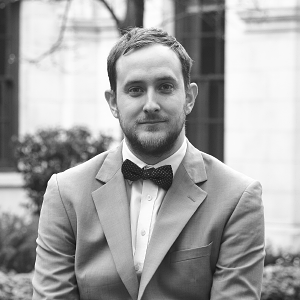Two weeks ago, Michael Sanders (BIT’s Chief Scientist) and his wife had a baby boy, Teddy. In this post, he talks about what happened next.
They tell you that everything changes, and they’re wrong. I liked numbers before, and I like them now. Here are some:
- 750ml – how much blood my wife lost in labour
- 8lb 9.5 ounces – how much my son weighed when he was born
- 6 Days – how long we were in hospital
- 2 chest X-rays
- 4 lumbar punctures
- 7 cannulas
- 25 doses of antibiotics
- 12 nurses, midwives, or students
- 5 doctors
- 5 family members visiting
- 5 friends visiting
- 6 cups of tea snuck into hospital
- 2 haddock and chips eaten on a hospital bed
There are many more numbers relating to my son – I have charts of his breaths per minute, temperature, white cell count, and oxygen saturation, among other things. It has, unsurprisingly, occurred to me to create a series of graphs charting his entry to the world and put them on my desk where normal people would place a picture of their infant son.
But there’s one number I wish I knew, and I don’t – let’s call it X. X is the number of women who donated the breast milk that we fed our son between feeds from my post-surgery wife to help him develop and put on weight. I don’t know whether it was one very generous woman, or several. I wish I knew their names, so that I could write to them and say thank you for what they’ve done for my family.
A quick google scholar search, and I’ve found no studies in behavioural science looking at this amazing form of altruism – compared to dozens looking at organ and blood donation. All of these blind donations – where the donor does not know who will be receiving their donation, or even if it will be used – save and change lives. I don’t know who is donating breast milk, or why, or where, or how much. I didn’t even know, two weeks ago, that breast milk could be donated. Yet now I could not be more grateful to those women who gave up the literal elixir of life from their own babies in order to help mine.
This is just one of many ways I have felt useless in the last two weeks, adding an inability to donate breast milk to my list of failings. What I do have, however, I will more than willingly give. I’ve spent more than half of my adult life studying donations – helping to raise tens of millions of pounds for charity and get hundreds of thousands of people onto the organ donation register. Now we are back at home and settling into family life, I am offering to donate my time and energy to any charity or hospital that accepts breast milk donations – if you have data, I will analyse it, if you advertise, or fundraise, or use communications to encourage more donations, I can help. Please, get in touch.
